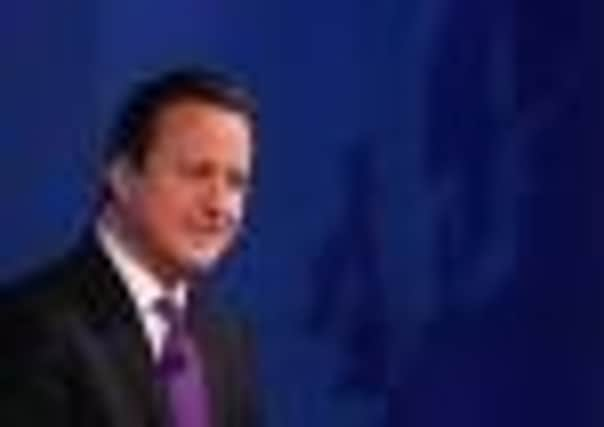Leaders: PM must canvas Continental cuts | Greatest challenge of youth


Yesterday Prime Minister David Cameron made clear, ahead of the two-day budget summit in Brussels, that the proposed EU budget is much too high and that there would be no deal if the total was not reduced. If this all sounds familiar, it is. Mr Cameron sought three months ago to cut a proposed 5 per cent increase and insisted on a real terms freeze.
His room for political manoeuvre at home is limited. The EU budget has always exercised his party’s Eurosceptic wing. But it would be wrong to view this as a matter purely of concern to those who have broader objections to the UK’s relationship with the EU.
Advertisement
Hide AdAdvertisement
Hide AdMany who are supportive of our continued membership have long been critical of the relentless growth of a wasteful European Commission bureaucracy and the allocation of budget funds to appease the strong farming lobby on the Continent. Barely a month goes by without a harsh spotlight being shone on a particularly wasteful and inefficient disbursement of funds with all too little scrutiny or criticism by the European Parliament.
Mr Cameron has made clear that the austerity demanded at home to deal with the debt crisis makes an above-inflation increase in the EU budget unacceptable.
And the UK is far from alone in seeking a cutback in the Commission’s plans. Germany, the Netherlands and Sweden also want to lower EU spending increases to mirror the cuts being made by national governments across the Continent.
European Commission president Jose Manuel Barroso has warned that “further delays will send out a very negative message at this time of fragile economic recovery”. European Council President Herman Van Rompuy had originally wanted a 5 per cent increase in its budget ceiling to 1.025 trillion euros, subsequently trimmed back in stages to 943 billion euros. But when other EU spending commitments are added, the figure bounces back up over one trillion euros.
As for the UK’s net contribution, this was reckoned by the Treasury at £8.1bn for the year to March 2011.
Suggestions in Brussels are that there may be room for a further cut in the Van Rompuy total to around 913bn euros. The cuts would probably come off growth-related spending areas such as joint energy projects, transport, the digital economy and research as the biggest spending areas – agriculture and projects in poorer EU countries are largely ring-fenced because of strong national interests. But that, in the view of many, is just the problem.
Mr Cameron is right to insist that the Commission recognises the very tough pressures being faced by the EU’s net contributor members and to insist on a real terms spending reduction. There is certainly enough bureaucratic padding that can be trimmed.
Greatest challenge of youth
Proposals by the SNP administration to extend the entitlement to vote in the referendum to 16 and 17 year olds have provoked considerable comment – and much of it strongly opposed to the idea. Critics have argued that we should stick with the existing arrangements; that there is no case to extend the franchise in this way and that all this is little more than a thinly-disguised ploy by the SNP to obtain more votes for independence from a section of the electorate more likely to be swayed by emotion than by the finer details of policy.
Advertisement
Hide AdAdvertisement
Hide AdBut how can we be sure what younger voters think? What do we know of their predisposition to vote at all? And what evidence is there that the extension of the franchise in this way would have a significant effect on the outcome?
Evidence from Jersey, the largest of the Channel Islands, where young people do have the vote suggests that, even in the island’s second election with this extended franchise, the turn-out of young voters was less than ten per cent. This would suggest that fears of a significant impact on the referendum vote are exaggerated.
And the case for extending the franchise has merit. Many join the labour force before they are 18 and are paying taxes. Some are already serving in the armed forces. And there is little doubt that as the outcome of the independence referendum will have a considerable effect on their futures. It is only right that they should be able to vote: it is, after all, their future.
The big challenge for Scotland’s political class now is to find ways of encouraging young people to take part in the debate, join in the hustings – and vote.